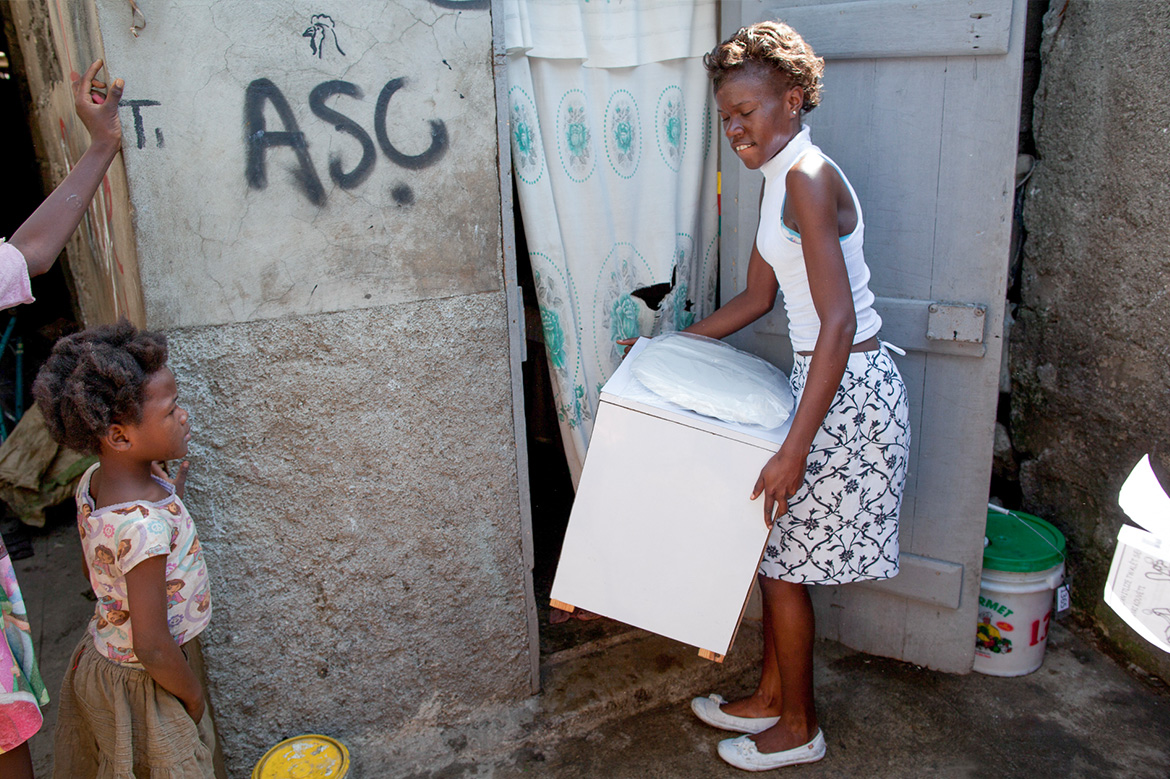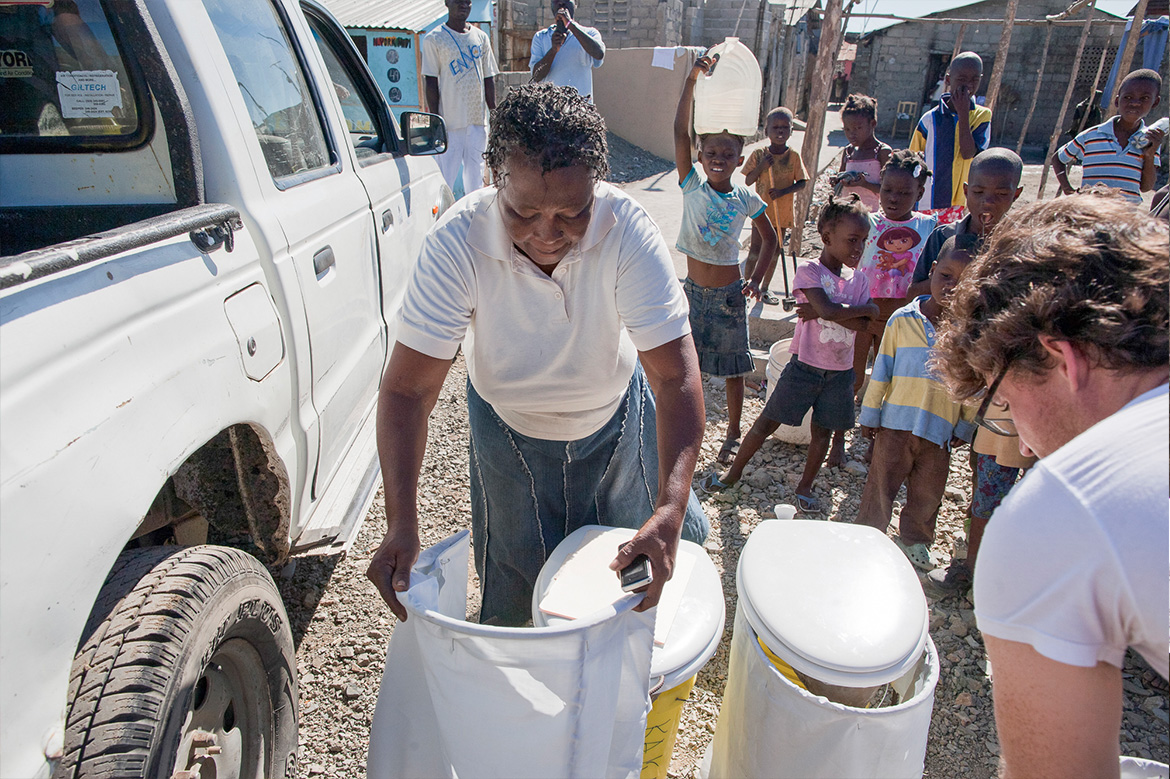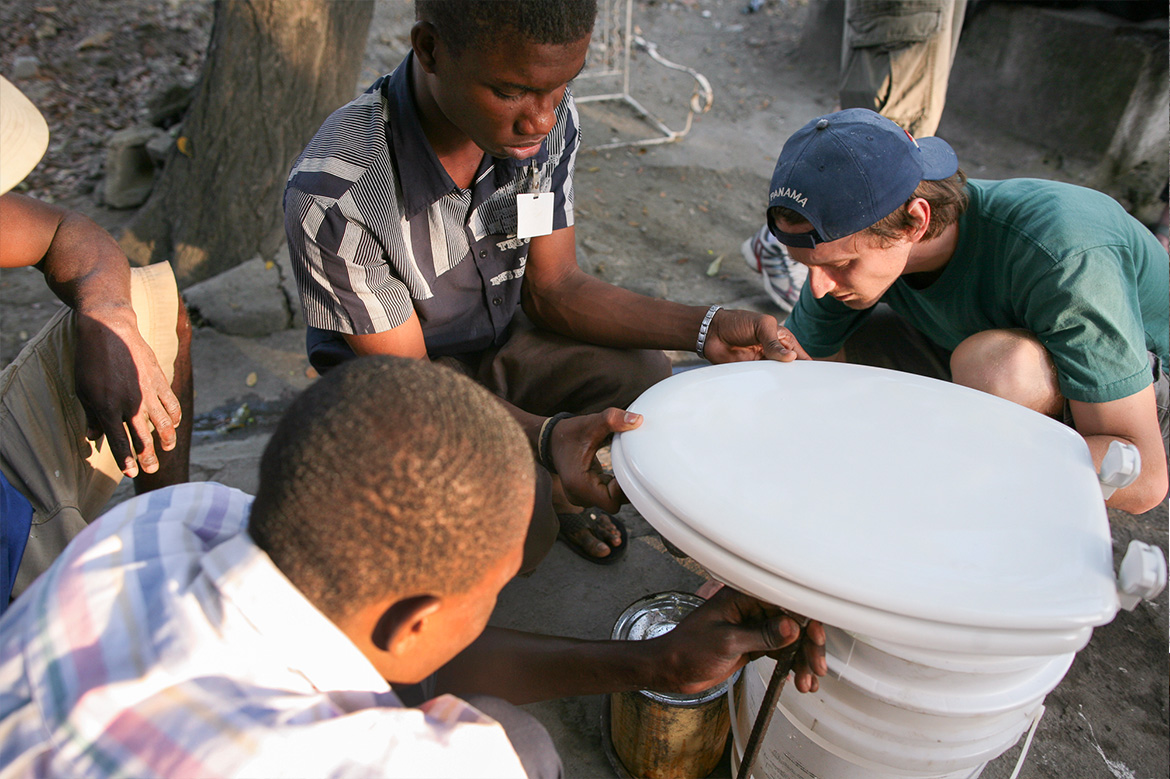When toilets fly
An initiative run by Stanford graduate students aims for a solution to sanitation challenges in urban slums.
An initiative run by Stanford graduate students aims for a solution to sanitation challenges in urban slums.
In many of the world's overcrowded urban slums, residents must choose crowded public toilets, open defecation, or expensive private pit latrines that can't be emptied safely. To offer an alternative, Kory Russel and Sebastien Tilmans, civil and environmental engineering graduate students at Stanford, co-founded an initiative called re.source. Under the guidance of Associate Professor of Civil and Environmental Engineering Jenna Davis, the Stanford team is developing portable, affordable dry household toilets and entrepreneurial service models for the developing world.

A woman moves her dry, portable toilet into her home in a slum of Cap-Haïtien, Haiti.
2.5 billion people lack access to adequate toilet facilities
"The goal is to isolate feces from people," Russel said. "Then we neutralize that waste so it's not a hazard, but actually a valuable product."
Unlike most sanitation solutions that only address one part of a dysfunctional supply chain, container-based sanitation models, such as the re.source service, tackle the whole sanitation chain. The re.source toilets separate solid and liquid waste into sealable containers, and dispense a cover material made of crushed peanut shells and sugarcane fibers that eliminates odors and insect infestations. The solid waste is regularly removed by a service, which takes it to a disposal or processing site to be converted to compost and sold to agricultural businesses.
"Sanitation is so much more than a fancy toilet," Tilmans said.
Customers can subscribe to the toilet service for a monthly fee of $5 – less than 3 percent of average monthly expenditures for households in a re.source study in Cap-Haïtien, Haiti – and they can take their toilets with them when they move. Mobile tracking technology monitors waste collectors' performance, maximizes efficiency and minimizes service costs.

Residents of Cap-Haïtien, Haiti, receive portable, affordable dry household toilets developed by Water, Health and Development program researchers.

Stanford graduate student Sebastien Tilmans and local staff set up a dry toilet system.
Working with the Water, Health and Development program of the Stanford Woods Institute for the Environment, where Davis has a dual appointment as the Higgins-Magid Senior Fellow, Tilmans and Russel have tested multiple toilet models with users. Their tests have included a free pilot phase with 130 households in Shada, a Cap-Haïtien slum where people commonly dispose of their feces in plastic bags known as flying toilets or hélicoptères that they throw into waterways. As a result, waterborne diseases such as cholera are a constant threat.
Of the households that used the service for the three-month pilot phase, 87 percent described themselves as "very" or "generally" satisfied, according to research led by Russel, and scheduled for publication this fall. Russel and Tilmans have used the insights from this research to advise the nongovernmental organization Sustainable Organic Integrated Livelihoods, re.source's partner in Cap-Haïtien, to expand the service to about 2,500 customers in more than 300 paying households, and to start a second service in Haiti's capital, Port-au-Prince.